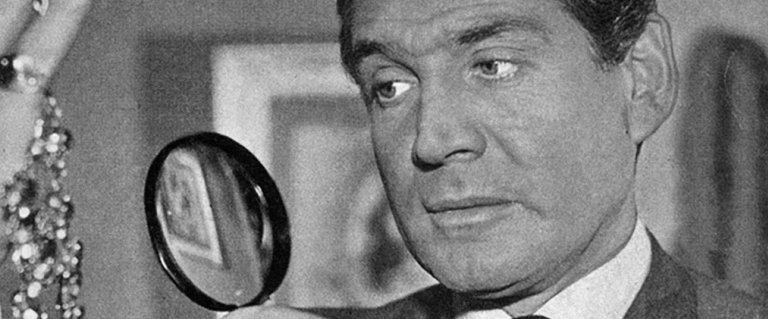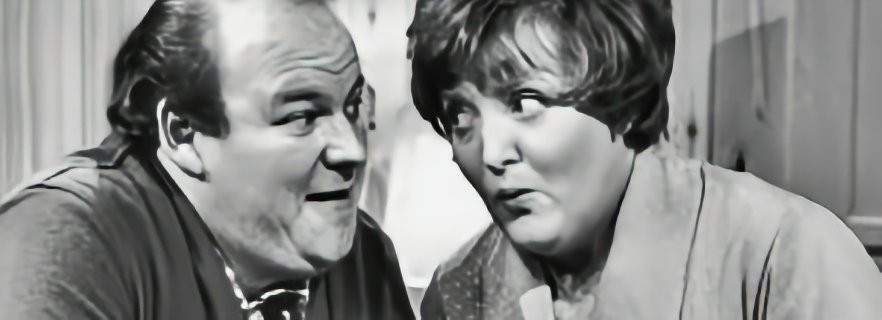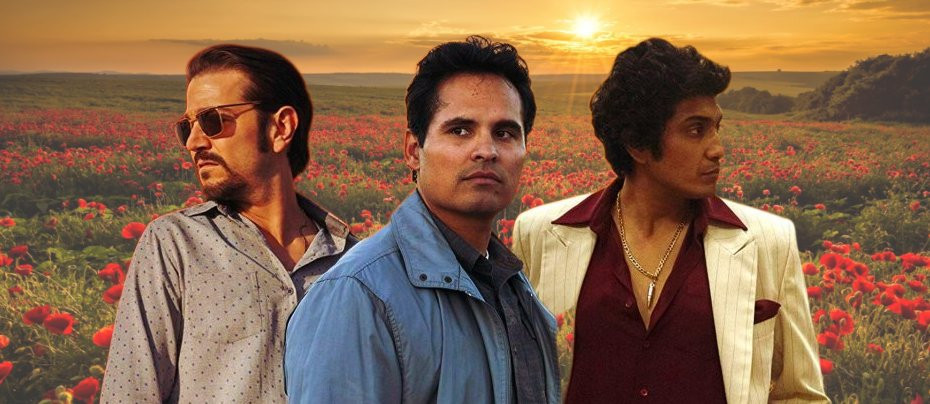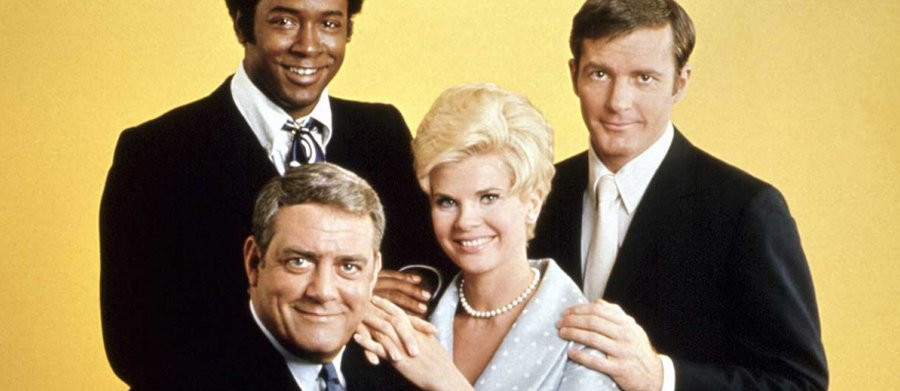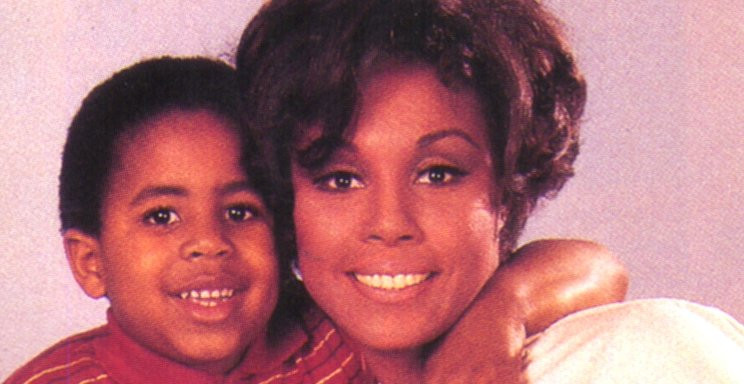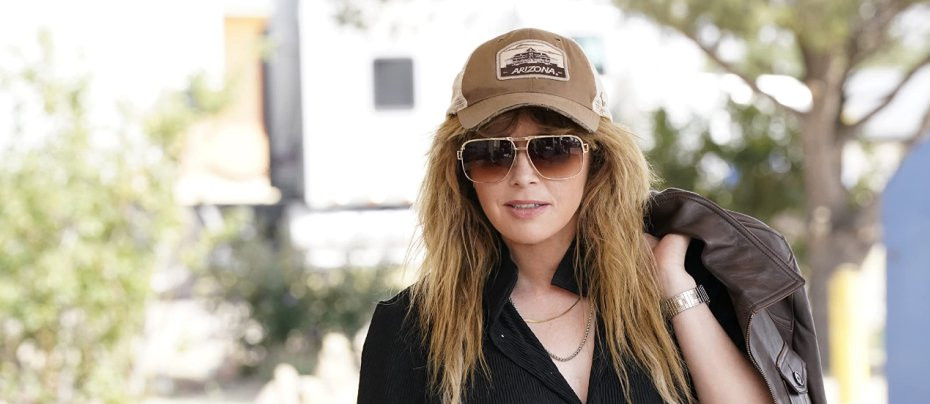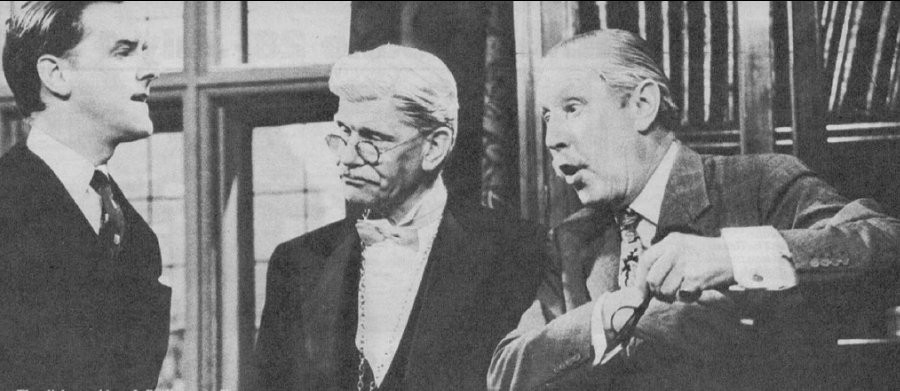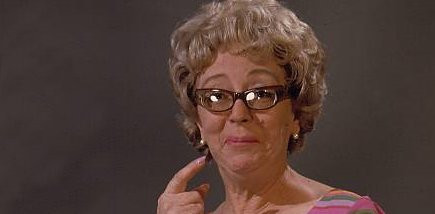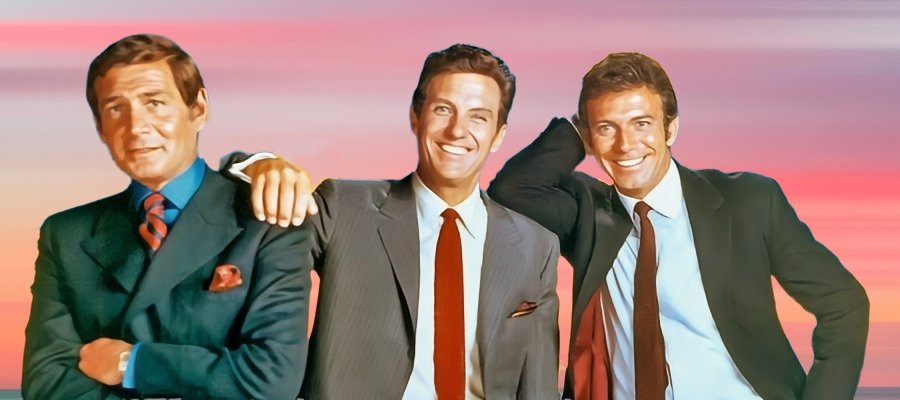
The Name of the Game
1968 - United StatesA Glamorous, Groundbreaking Giant with Cracks in its Foundation
When The Name of the Game debuted on NBC in 1968, it did so with the thunder of prestige, promise, and a $400,000-per-episode budget — then the largest in television history. It was not merely a continuation of the 1966 TV movie Fame Is the Name of the Game (directed by Stuart Rosenberg and starring Tony Franciosa), but a bold evolution of it, expanding into a sprawling, stylish anthology centred around the fictional Howard Publications and the distinct adventures of its journalists. This wasn’t just a show — it was an early attempt at television grandeur.
The series rotated between three leading men: Gene Barry as Glenn Howard, the icy, impeccably dressed publisher with a Roman bath in his office; Robert Stack as Dan Farrell, the hard-nosed editor of Crime magazine and ex-FBI agent fuelled by personal tragedy; and Tony Franciosa as Jeff Dillon, a smooth, sharp, rule-breaking investigative reporter with a charming East Harlem edge and a penchant for vermouth cassis and surfing.
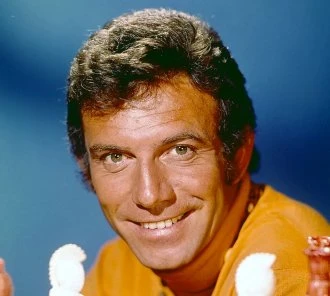
Each lead brought a different energy to the show — sometimes to its benefit, sometimes to its detriment. Franciosa’s episodes were undeniably the most compelling, owing much to the swagger and kinetic unpredictability he brought to the role. Dillon wasn’t just the most fully realised character — he was fun, and the ratings confirmed audiences agreed. Yet behind the scenes, Franciosa was a storm — volatile, erratic, and ultimately unsustainable. His behaviour on the legendary "I Love You, Billy Baker" episode, a Las Vegas-set extravaganza featuring an all-star lineup including Sammy Davis Jr., Ray Charles, and Tina Turner, led to his abrupt exit. Despite being the show’s brightest star, he proved to be too much of a liability.
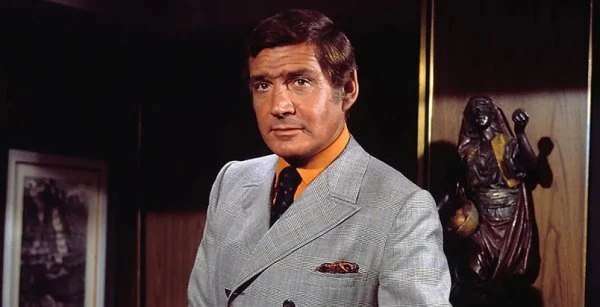
Barry’s segments, meanwhile, felt more like Cold War Bond pastiches than hard-hitting journalism, often showcasing less plot and more of his parade of designer suits. Producer Dean Hargrove once dryly noted Barry cared more about wardrobe changes than the scripts. Still, there was a cerebral coolness to his episodes, a worldliness that previewed the glossy wealth-and-power dramas TV wouldn’t fully embrace until Dallas and Dynasty a decade or more later. His self-made businessman character who cut an elegant, impeccable, playboy millionaire figure, was similar to his long-running character of Amos Burke in Burke's Law.
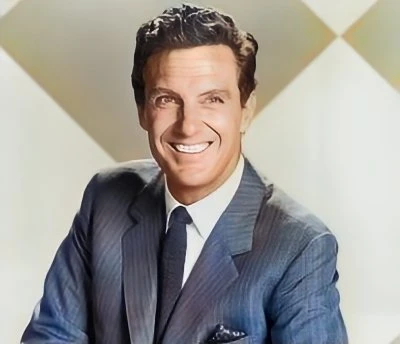
Stack’s contributions, unfortunately, were the least resonant. Though stoic and commanding as Dan Farrell, his episodes often dragged under the weight of moralising monologues. As Steven Bochco, who cut his teeth as Stack’s story editor, bluntly put it: “Bob Stack’s episodes were the dullest of the three.” Ed Asner, who guest-starred, was even less generous, calling Stack “too stiff.” It’s telling that Stack and Franciosa never shared screen time — their styles and energies couldn’t have been more different. Presented as a righteous figure with a tireless sense of justice, Stack’s character recalled his previous role as Federal Agent Eliot Ness in The Untouchables.
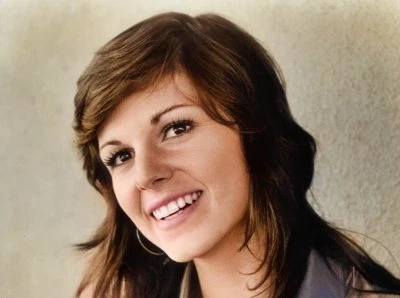
Anchoring it all was Susan Saint James (McMillan and Wife) as Peggy Maxwell, the bright, husky-voiced research assistant who drifted fluidly between all three leads’ storylines. Smart, poised, and a crucial connective tissue for the show, Saint James brought a charm and consistency the rotating male leads often lacked. Her work earned her an Emmy and remains one of the most grounded aspects of the show.
What The Name of the Game lacked in tonal consistency; it made up for in ambition. Behind the scenes, its crew included future legends: Steven Bochco was fresh out of college, Leo Penn (father of Sean) was an experienced director who had worked on Bonanza, Dr. Kildare and Ben Casey, and even a 23-year-old Steven Spielberg was to be found directing one of his earliest hours of television. The DNA of future classics can be glimpsed in the show’s production — the seeds of Hill Street Blues, Matlock, and even Jaws were sown here.
In retrospect, The Name of the Game was both ahead of its time and a product of its era. It flirted with serialised prestige television long before such a term existed. It was opulent, with guest stars that included Frank Sinatra, Honor Blackman, Chuck Connors, Dana Andrews, Martin Balsam, Charles Boyer, Nigel Davenport, Yvonne De Carlo, Steve Forrest, Pamela Franklin, Zsa Zsa Gabor, Frank Gorshin, Peter Graves, Julie Harris, Noel Harrison, Burl Ives, Van Johnson, Shirley Jones, Louis Jourdan, Boris Karloff, Peter Lawford, Dorothy Lamour, Gypsy Rose Lee, Roddy McDowall, Leslie Nielsen, William Shatner and Donald Sutherland. The fictional magazine’s title — People — was a pop-culture prophecy, pre-dating Time Inc.'s real publication by six years. “The dumbest title I have ever heard of,” Franciosa scoffed at the time. He was wrong about that.
But while the show opened the door for television’s future, it couldn’t quite sustain its own present. After Franciosa’s firing, replacement actors — Robert Culp, Robert Wagner, Peter Falk and Suzanne Pleshette filled in awkwardly, the males portraying Jeff Dillon-type characters in all but name. "They were just waiting for Tony to come back,” Saint James later recalled. He never did. Without him, the show lost its heartbeat and limped toward cancellation in 1971.
Franciosa would star in three more series, Search Control, Matt Helm and Finder of Lost Loves. He suffered a heart attack in the living room of his rustic Brentwood cabin in 2006 having not made a television appearance since 1997. He died shortly after.
Today, The Name of the Game stands as a fascinating artifact — a glittering, flawed gem from TV’s transitional age. It tried to be too many things to too many people, and yet in its highest moments, it glowed with promise and daring. That ambition, like the show itself, was both its triumph and its undoing.
Seen this show? How do you rate it?
Seen this show? How do you rate it?
Published on May 3rd, 2025. Written by Laurence Marcus for Television Heaven.


